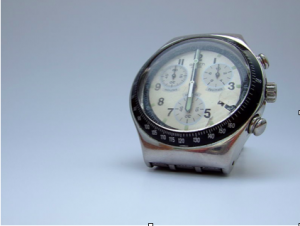New Years Resolution #2: Be More Punctual
- At January 15, 2016
- By rbadmin
- In Blog
 0
0

Our experience of time is drastically changing, but it’s changing so slowly that most of us don’t even notice.
In his mega-bestselling book Future Shock, Alvin Toffler explained how the industrial revolution transformed our experience of organization and time before explaining the new shifts heading our way as we transition into a post-industrial society.
“Mass education was the ingenious machine constructed by industrialism to produce the kind of adults it needed,” he wrote. “The problem was inordinately complex. How to pre-adapt children for a new world – a world of repetitive indoor toil, smoke, noise, machines, crowded living conditions, collective discipline, a world in which time was to be regulated not by the cycle of sun and moon, but by the factory whistle and the clock.”
That’s why we grew up with school bells. Administrators placed there to prepare us for the factory whistle, when we’d have to be precisely on time—right down to the second—or industrial machinery would grind to a halt.
Most of us don’t work in factories anymore. Our time is no longer punctuated by school bells and factory whistles, but hardly any of us are regulated by the sun and the moon these days either. In our post-industrial era, most of us are living somewhere in between.
Punctuality is more important than it was before the industrial revolution, but for many of us it’s less important than it was in the late 19th and early 20th centuries. As a consequence, a lot of us are chronically late. It’s annoying and disrespectful and it hampers productivity, but terrible things rarely happen if we’re late all the time, so the problem festers.
Diana DeLonzor, author of Never Be Late Again, says “Most late people have been late all their life, and they are late for every type of activity — good or bad.”
She argues that the chronically late are often overly optimistic and unrealistic. They think they can stop for gas and coffee on the way to work in the morning, but fail to take into account the construction zone down the block and the traffic jam on the bridge.
If you recognize yourself here, just plan to be early and more often than not you’ll arrive bang on time.
The same applies to long deadlines. Try to finish big projects early instead of nosing in just under the wire.
Americans who stay late at the office often give the impression that they’re hard-workers, but Europeans who stay late at the office come across as incompetent. Their colleagues often wonder why on earth it’s taking so long when everyone is already finished.
That doesn’t mean you should be the first out the door every day if you work in the US, but if you’re wrapping up a project by 3:00 in the afternoon the day before it’s deliverable, you’ll project an image of competence as well as punctuality.
Your colleagues, friends and family will all respect you more if you’re reliably on-time. You’ll respect yourself more, too. Your status will be greater, and that really does matter.
Humans are hard-wired to fret about status because those of us with higher status have always gotten a larger share of scarce resources. We aren’t scrounging like hunter-gatherers anymore, but the best jobs and the best salaries are finite. Don’t kneecap yourself with your tardiness.
Perhaps best of all, though, you’ll be more relaxed. Being late, and the fear of being late, adds stress to our lives, but with just a small bit of effort it’s one of the easiest stressors to banish.
